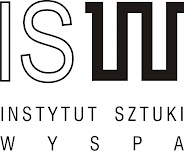



Back to Aram Gallery we were debating ethics on the backdrop of historic event, having as a point of departure two movies. First is Andrzej Wajda's "Man of Iron" [1981], tle legendary motion picture that build international image of Polish "Solidarnosc" [Solidarity] movement. Wajda depicts idealist social movement born country wide and helped to end communist rule in Central and Eastern Europe. Nearly exactly at the moment of its birth Wajda and the script author Aleksander Scibor-Rylski draw psychological sketches of those who were to undertake their decissions to support dissidents and the movement and those who regardless of all doubts submitted to the regime. In the center of movie's attention are two TV journalists who under the pressure of political events decided differently about ethics of their work and about the prices paid for that.
The other movie referred to was "Hidden" by Michael Haneke. Portraying closely parisian middle-class family of George, an influential TV moderator. Haneke puts important historic event that decades later ended integrity in the family, far away from our eye. It is a set of small personal decissions, envy and childish selfishness that ends chances of orphaned Algerian boy chances to live better life when George was himself a child. Majid lost his parents along with the deaths of 200 Algerians drowned in the River Seine during the clashes with the police on 17 October 1961. The dramatic and shameful moment in French history almost never spoken about in the country and failed to be properly covered by the media. In Haneke's movie it is been revealed as a a secret of the family life. It is not George's job that is in the center of attention, but his inability to admit and carry on the guilt for Majid being rejected from adoption and for his current sudden suicidal death.
So the trajectories of the movies are opposite. One of them panoramic, epic, incrusted with psychologic miniatures. The latter screen-wide analysis of the disruption of the faced of happy family life by lies and mistrust with never admitted piece if history in the background. In both movies though it is personal choice and responsibility that actually does make history.
Discussing the movies we have spoken about ethics, duties of public intellectual including the artist.









